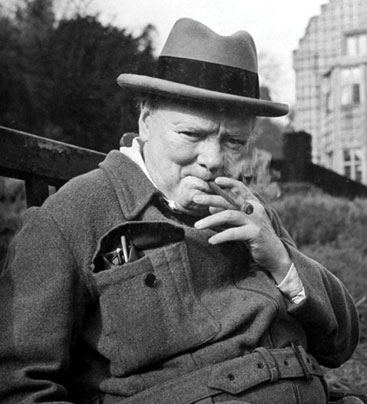CHURCHILL OUT OF HIBERNATION, WEEK 18
Few aspects of Winston Churchill are more controversial right now than his views on India before independence. Fortunately, as with virtually every other Churchillian aspect, there is no need to dredge the internet for misinformation on this subject because he published a book about it, unflinchingly titled: INDIA. In our ongoing excursion through Churchill’s book-length works, we examine INDIA next.
 Winston Churchill was a colonialist. There is no disputing this. He believed in the British Empire, not as an institution of oppression but as a force for good, an elevating presence in every colonial corner of the globe. Today we must recognize that Churchill got colonialism all wrong, overlooking the fundamental human right of every colonial subject to self-determination. But there is an argument to be made that, as a product of his age, Churchill was a colonialist with a conscience.
Winston Churchill was a colonialist. There is no disputing this. He believed in the British Empire, not as an institution of oppression but as a force for good, an elevating presence in every colonial corner of the globe. Today we must recognize that Churchill got colonialism all wrong, overlooking the fundamental human right of every colonial subject to self-determination. But there is an argument to be made that, as a product of his age, Churchill was a colonialist with a conscience.
India was his weak spot. Churchill knew India well — as a young subaltern in the British cavalry he’d virtually grown to manhood there, from 1896-1899, age 22-24. His first book, The Story of the Malakand Field Force, was about his time in India.
While Churchill’s “Wilderness Years” of the 1930s would ultimately be dominated by Germany, they began with India. The Labour Government’s policy to grant India Dominion status was Churchill’s severing point in 1931 with the Conservative Party, once it too announced its willingness, as the largest party in the new national government, to put India on a path toward partial independence.
From that point on, Churchill was an outsider essentially without a party. His resistance to Indian independence, however eloquently expressed in his Parliamentary speeches, cemented his isolation.
The idea for a book of these speeches was Churchill’s. He offered his publisher, Thornton Butterworth, seven “very good speeches…I have taken much more trouble with them than any book,” then added three earlier orations and a sharply worded Introduction. India was published in a hardcover edition in May 1931 and in softcover almost immediately thereafter. It sold well enough for second printings of both editions to be issued.
Churchill’s essential forebodings about the Muslim-Hindu violence he feared liberation would bring to India did prove prophetic, as did his fears that the Untouchables would remain outcasts from much of Indian society. He also understood the political machinations of Gandhi but failed to comprehend Gandhi’s charismatic appeal, famously characterizing him in India‘s most famous speech as “a seditious Middle Temple lawyer, now posing as a fakir of a type well-known in the East, striding half-naked up the steps of the Viceregal Palace.”
Like so many of Churchill’s views, this sense of Gandhi also evolved. Four years after India was published, with an India Bill now passed in Parliament in 1935, Churchill invited one of Gandhi’s leading supporters, G. D. Birla, to lunch with him at Chartwell. After greeting Birla in the garden, Churchill confessed that “Mr. Gandhi has gone very high in my esteem since he stood up for the Untouchables . . . Tell Mr. Gandhi to use the powers that are offered,” Churchill implored, to Birla’s amazement, “and make the thing a success.”
We wish you continued health and safety.
With the election approaching, make use of the powers that are offered and make the thing a success.


